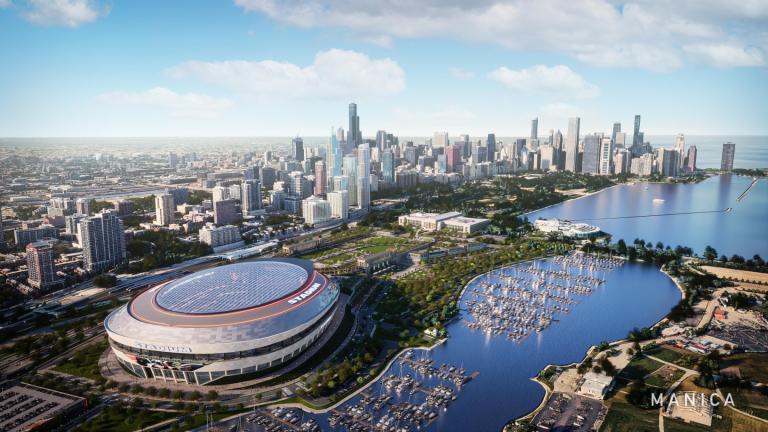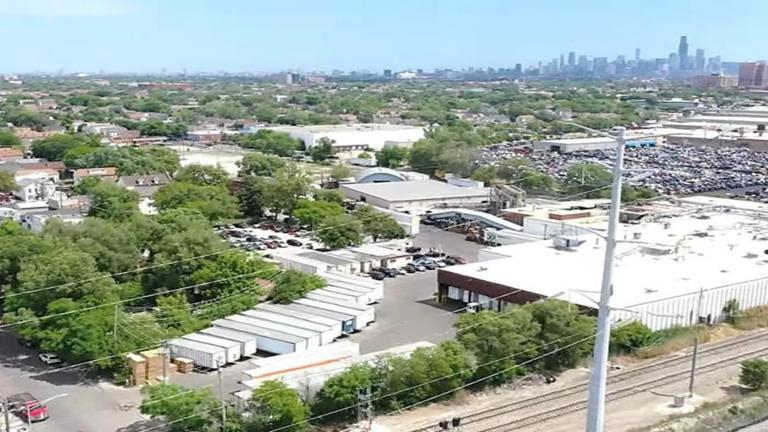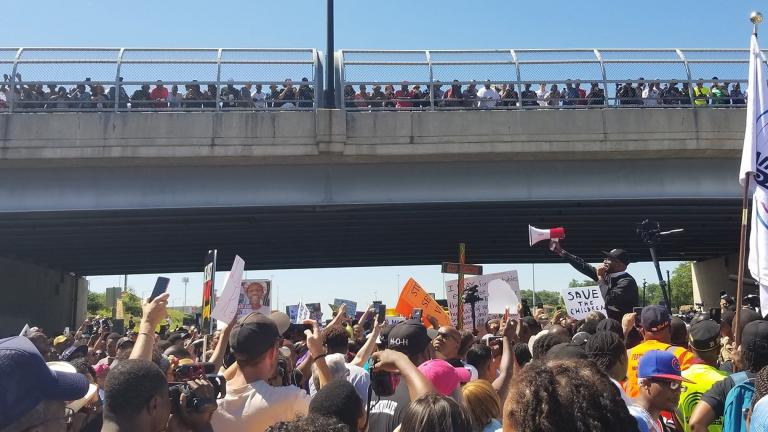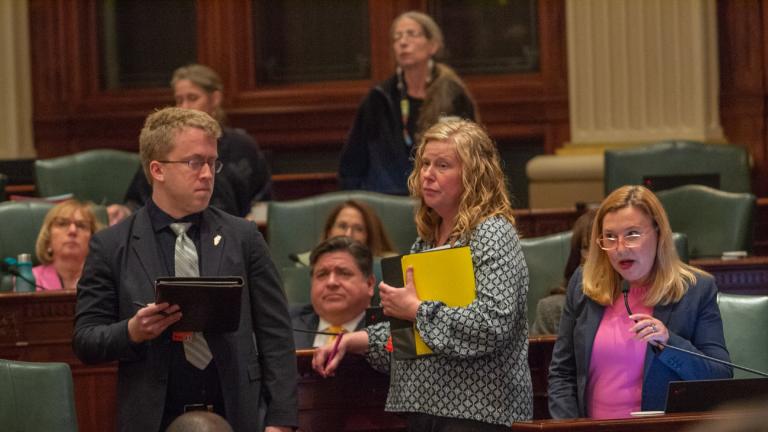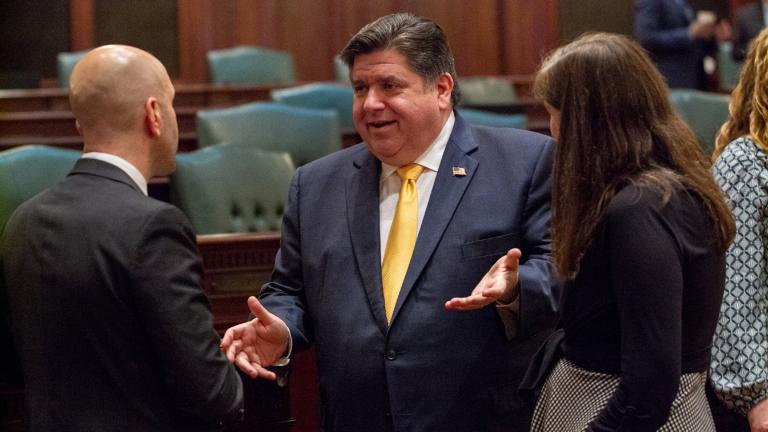When the Illinois governor and legislative leaders announce they’ve reached a $45 billion deal, the smart money is that it’s a go. And in this instance that means that Illinois residents should expect to be refunded some of the money they’ve paid in government taxes.
Gov. J.B. Pritzker, flanked by Illinois Senate President Don Harmon and Illinois House Speaker Emanuel “Chris” Welch Thursday evening, announced a $45 billion budget deal, heavy on election-year enticers in the form of tax relief that Republicans say is an obvious campaign gimmick.
The spending plan is a “responsible, balanced budget,” Pritzker said.
None of the leading Democrats offered details about what’s in the proposal, beyond broad strokes of $1.8 billion in mostly temporary tax relief.
“This is a budget that we can all be proud about,” Welch said. “It also responds to the difficult times that many people and families across this state find themselves in now with the rising cost of inflation. This budget will say ‘Illinoisans, we hear you.’”
The relief will come in the form of a yearlong suspension of the 1% tax on groceries, a six-month freeze at 39 cents a gallon of the motor fuel tax (which is otherwise set to increase to 41 cents this summer), and a one-time property tax rebate of up to $300.
The vast majority of taxpayers – anyone making $200,000 or less – will also receive a $100 rebate (joint filers will get $200, plus $50 per up to three dependents).
Much of the relief will hit around the time that voters will be casting their ballots in the June 28 primary contest or Nov. 8 general election, giving the appearance that lawmakers are using state funds to butter up their constituencies.
Republicans say it sets the state up for a fiscal cliff, once billions in federal COVID-19 relief is exhausted — relief that has boosted the bottom line of state spending in sheer grant dollars, as well as via higher-than-expected tax revenues linked to inflation.
“This isn’t a triumph of good management; the state is simply experiencing an inflation-induced sugar high,” House Republican floor leader Mark Batinick of Plainfield said in a statement. “When the state crashes we will still have the same problems, but without the federal funds to bail us out. No structural changes have been made. No permanent property tax relief has been extended, and no regulatory relief has been implemented. Eventually, the pressures of inflation will catch up to the expense side of the ledger. There are storm clouds on the horizon.”
Democrats say their proposal is fiscally prudent, with $1 billion put into a previously latent rainy day Budget Stabilization Fund.
Other recent actions used American Rescue Plan Act (ARPA) funding to pay down debt in the state funds that pay for unemployment benefits and state employee health insurance.
Such actions have prompted ratings agencies to reverse longtime trends of downgrading the state’s credit and there have been hints that another upgrade could be coming; the non-partisan Civic Federation also gave a mostly glowing review to the initial vision for Fiscal year 2023 that Pritzker released in February.
However, the Civic Federation disapproved of the motor fuel tax freeze, saying it “provides minimal benefit to consumers and risks significant loss of current and future revenue while potentially setting a negative precedent for further tax freezes or even reductions at the expense of critical transportation improvements.”
The new deal includes much of Pritzker’s original proposal but looks to spend an additional $1 billion — $800 million through additional tax relief and $200 million more on “public safety” investments.
“As Gov. Pritzker is running for reelection, he’s used the avalanche of federal bailout cash to paint a rosy picture of the state budget,” House Deputy Republican Leader Tom Demmer said in a statement. “But the facts show a different story. This year’s budget increases spending by 8% on state operations, while revenues are projected to decline by 1% over the same period—which makes this budget framework untenable.”
Demmer said that will lead to Democrats in the future pushing for “tax hikes.”
That’s not to say the GOP won’t vote for these measures. They’ll be hard-pressed not to in an election year.
But Republicans said the breaks should be accompanied by structural changes, and instead of one-time checks and temporary breaks they should be permanent.
Sen. Chapin Rose, R-Mahomet, said he and other Republican senators tried to force that issue, but Democrats largely closed the GOP out of negotiations.
“What do we want? Do we want permanent help for the people of Illinois? Or do we want more government spending?” Rose said.
Not all of the relief is short-term.
The Earned Income Tax Credit (EITC), a tax break available to low-income workers, will be extended, from 18% to 20% of the federal credit. New workers will also be eligible for the break.
And local governments, which in recent years saw the state reduce their share of the state sales tax, are set to see their funding restored. The package calls for giving the Local Government Distributive Fund (LGDF) an 8% share of the state’s net income tax revenue, up from 6%.
Although there was no language posted for the measure by Thursday night, similar iterations were vetted in committees earlier in the week.
“When has a budget been filed as early as it has been filed? We have been very intentional about getting a budget out early, allowing you all and the Republicans to participate,” Welch said during a Thursday media conference. “They printed it out, they’ve read it, they participated in a budget hearing yesterday.”
That hearing was on a previous draft.
Harmon said voting on the final version is scheduled for Friday, the day the General Assembly is scheduled to adjourn its abbreviated spring session.
Follow Amanda Vinicky on Twitter: @AmandaVinicky

